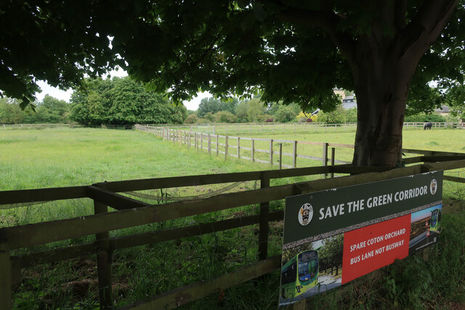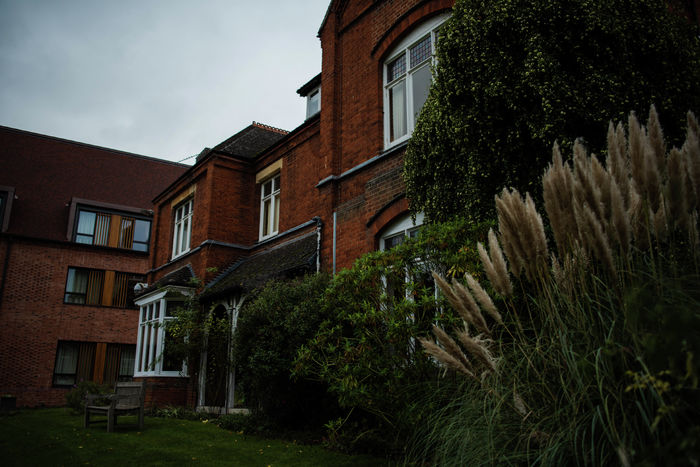University criticised for role in Greater Cambridge Partnership
Local groups have criticised what they see as a mismatch between the University’s environmental stance and the projects it supports

The University of Cambridge holds a seat on the board of the Greater Cambridge Partnership, but both have come under fire for their role in developments and council policy across the city.
In 2014, the Greater Cambridge City Deal promised £500 million in funding to stop rising inequality by improving local housing and transport, for what was one of the UK’s most unequal cities.
When the Greater Cambridge Partnership (GCP) was set up to deliver the project, Cambridge University was given one of the five seats on the executive board. Although only the councils on the board have voting rights, they are obligated to “consider advice” from the university and business.
Rachel Stopard, the CEO of the GCP, told Varsity that its key priority at the time of its foundation was transport. The programme was intended to improve public transport, cycling, and walking, Stopard said, while “having less impact on the climate and environment”.
The assurance framework, laid out in a government paper, states that the funding is designed to boost the technology and research sectors. The deal allows “a long-term increase in jobs emerging from the internationally competitive clusters and more university spin-outs”, it reads.
When asked whether the GCP was intended to serve ordinary people or technology businesses and the university, Rachel Stopard responded: “It’s definitely about getting ordinary people to see some of the benefits that come from growth because clearly there are more jobs available for local people if the economy is thriving in Cambridge”.
Phil Rodgers, a political commentator for the Cambridge Independent, told Varsity that the GCP is “remote and unaccountable”. “Few of the policies it has been implementing featured in the manifestos of those councillors when they were running for election, and there isn’t a very direct way for voters to change what the GCP is doing,” he said.
Rodgers considers the matter historically: “The University used to elect its own MPs up to 1950, and it had its own representatives on the City Council up to 1973, and both these things were rightly abolished because they were undemocratic. So I think it’s a bit of a backward step to have seats reserved for the University and business representatives on the GCP Assembly and Board, even though they are non-voting”.
Naomi Bennet, who represents the Green party on the city council but spoke to Varsity in a personal capacity, said of the recently stalled congestion charge plans: “What we got was a transport plan made by transport professionals. What we needed was a holistic plan for a system change that will have a very broad impact on our society and local economy”.
Stopard defended the plans, saying that the policy comes from a necessity to fund public services, which are “in decline”. Stopard believes that the charge would have allowed the council more funding, such as for fare subsidisation, which would have meant savings for the “people least well-off”.
Stopard believes that the University relies on public transport for its staff who cannot afford to live in the city centre: “Many jobs like cleaners and caterers [...] are travelling from outside so we do need to find solutions so that you can recruit people to those jobs, even when they’ve got a commute to get to the university”.
Another controversial project of the GCP’s is the Cambridge to Cambourne busway (C2C). It links the West Cambridge university site with Cambourne, and cuts through a 100-year-old orchard designated as a habitat of principal importance.
Members of the Coton Busway Action Group told Varsity that there is “no compatibility between the University’s single-minded support for the off-road route and the University’s policies on environment, sustainability and climate change”.
The group highlighted a potential conflict of interest, saying that it is “unclear” to what extent the University will “benefit in an uplift in land values and potential for development” from the plans.
A spokesperson for the University of Cambridge said: “We are a committed and active member of the local community, and recognise the role and responsibility we have to support [...] sustainable development.”
“The GCP represents the entire community through a partnership of councils, business and academia, working with partners and local communities across Greater Cambridge. As part of the fabric of the city, as well as a major, local employer, it’s important to be involved.”
On the Cambourne busway, a University spokesperson said that the scheme “will provide better public transport services and active travel opportunities for thousands of people, helping to cut congestion on the roads, reduce carbon emissions and improve air quality for everyone.” The scheme included an Environmental Impact Assessment, they noted.
 Features / Are you more yourself at Cambridge or away from it? 27 January 2026
Features / Are you more yourself at Cambridge or away from it? 27 January 2026 Interviews / Lord Leggatt on becoming a Supreme Court Justice21 January 2026
Interviews / Lord Leggatt on becoming a Supreme Court Justice21 January 2026 News / Reform candidate retracts claim of being Cambridge alum 26 January 2026
News / Reform candidate retracts claim of being Cambridge alum 26 January 2026 News / Vigil held for tenth anniversary of PhD student’s death28 January 2026
News / Vigil held for tenth anniversary of PhD student’s death28 January 2026 News / Stand Up To Racism protests in solidarity with Minneapolis marches28 January 2026
News / Stand Up To Racism protests in solidarity with Minneapolis marches28 January 2026










